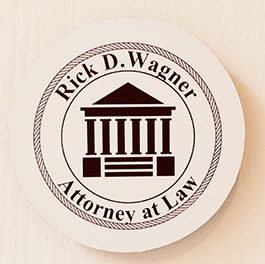Signs that Your Car’s AC Unit Might Need Repairs
By Ursula Nizalowski
Once upon a time, air conditioners used to be a luxury feature in cars. Now it’s common for all
cars to have for not only keeping the interior cool during the hot months of summer but also
expelling bad odors like cigarette smoke and exhaust fumes. Though because we take air
conditioner (AC) units for granted, it catches us off-guard when the unit starts showing signs of
failure. And if the AC unit continues to fail, it could lead to permanent damage and a higher
repair bill. So it’s arguably more cost-effective to spot the problems early to determine what
repairs need to be made.
What to Look For
1) Weird Noises – Like houses, a car can have many different kinds of sounds coming
from it. Though if something sounds off or has never been heard before, it ought to be
investigated. Because while it might be nothing, it’s also possible that strange noise could be the
result of a mechanical problem in the AC unit that needs to be looked at.
2) Bad Airflow – Since our skin is naturally sensitive, we can tell the temperature of
the air around us as well as how strong the airflow is. Thus it’s noticeable when airflow from the
car’s AC unit is weak or warm. Both of these scenarios usually imply something is wrong as the
McCarthy Chevrolet car dealership claims this could either be due to the AC unit’s air filter
being clogged or having a failing compressor, which “can restrict airflow and cause the system to
blow warm air” instead of cool air.
3) Unpleasant Odor – Various smells occupy our cars whether it’s lingering cigarette
smoke or from trash left in the car. But if there’s a bad scent coming out of the car’s air vents, it
“could be a sign of mold or bacteria growth” in the AC unit according to AAA Insurance. Then
once it’s airborne, that bacteria will likely put the car occupants’ health at risk if the issue isn’t
dealt with right away.
4) Moisture & Leaks – One of the main causes for bacteria growth in a car’s AC unit
is the buildup of moisture, which is typically the result of a clogged drain tube. When this
happens, the excess water will either condensate inside the car creating fog or leak out forming
puddles. These leaks might also damage other parts of the AC unit, “leading to costly repairs or
replacements” if left unchecked Natrad Radiators &; Auto Air says.
5) Frequent Switching – Unless the car has auto climate control, most AC units in
cars are run manually. So if the AC unit keeps switching on and off by itself unexpectedly, that
indicates a significant problem. Because this means the AC unit is short cycling, which SMW
Refrigeration & Heating defines as a “quick and sudden burst of energy usage. At the same
time, the unit is struggling and working as hard as possible” causing strain and possibly further
damage should the situation be ignored.
Types of Repair Methods
DIY – Within the past decade, DIYs have become very popular due to their cost-
effective methods for handling different situations and car repairs aren’t out of the question. For
instance, it’s possible to troubleshoot problems with the car’s AC unit by testing the fan at
different speeds and checking the air filter for debris. But if a simple cleaning or replacement of
the filter won’t fix the issue, then it might be time to call a professional.

Professional – Hiring a technician to fix one’s car is arguably more expensive than a DIY, but there’s a stronger guarantee that they’ll fix whatever is wrong with the AC unit.
Because not only will they have the right tools for the job, but they’ve also been trained on what to do for different repair-related scenarios. With that said, the technician’s level of expertise and
whether the repair shop they work at uses quality auto parts and offers warranties that might
offset the cost of repairs will determine how effective they are.
For more information on failing AC units in cars and what to do about them, feel free to contact
attorney Rick Wagner.

